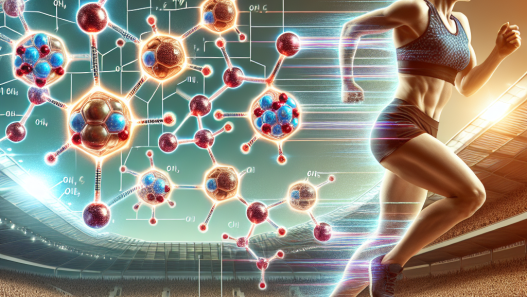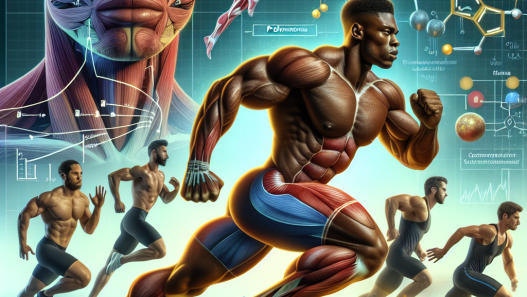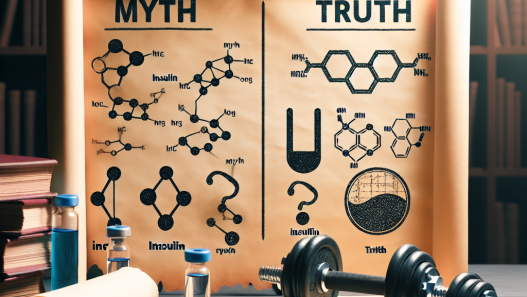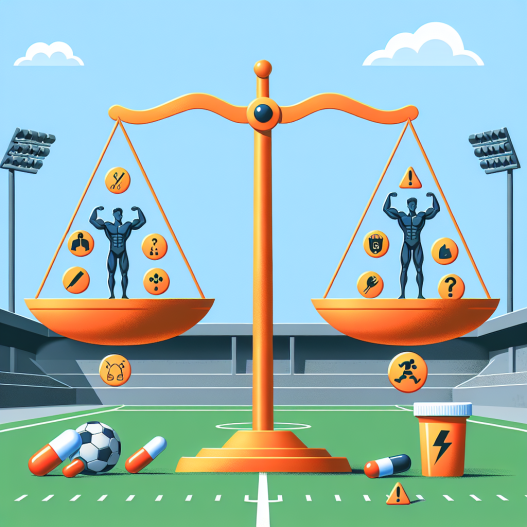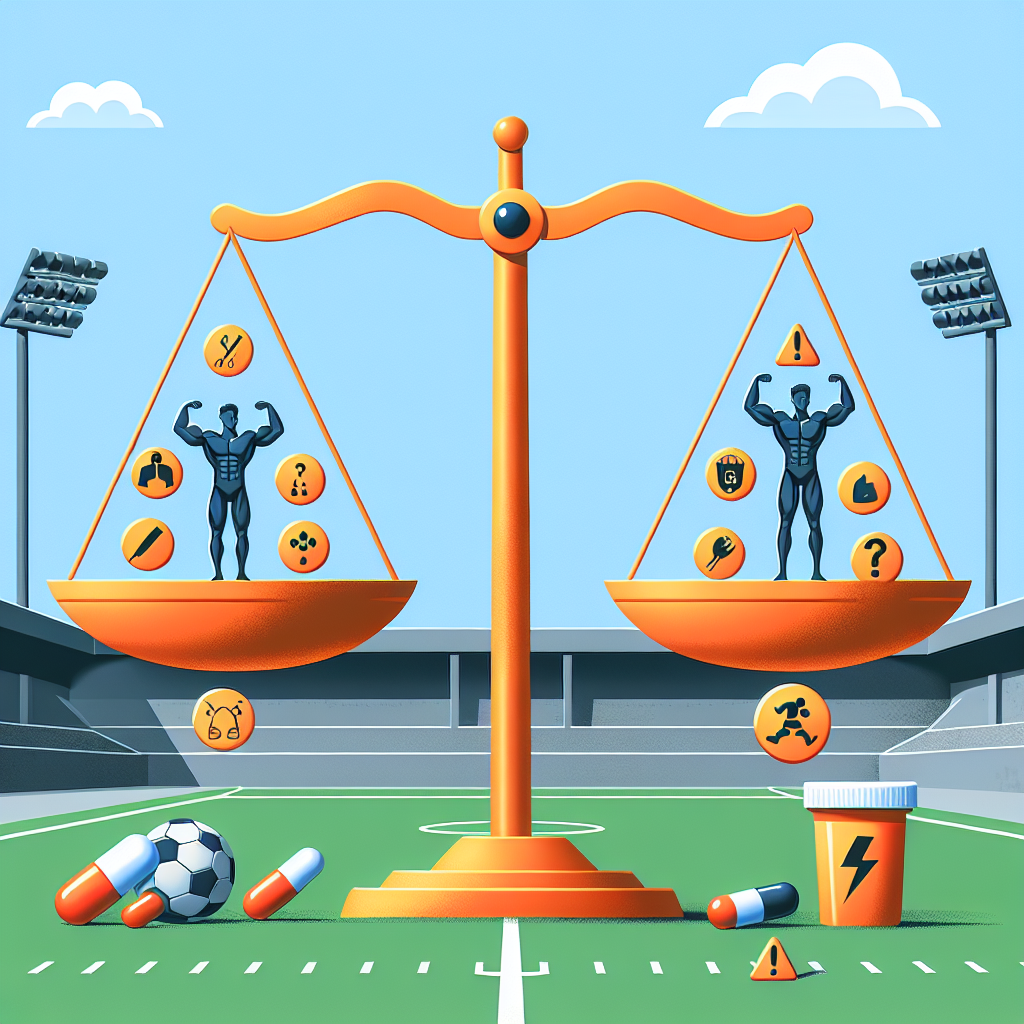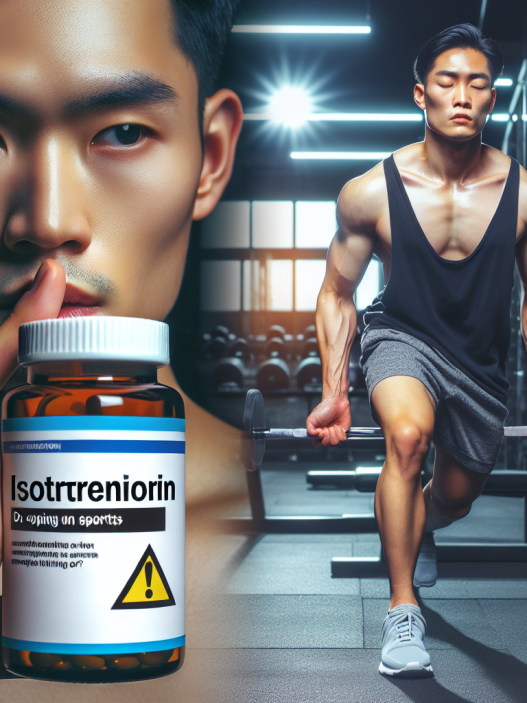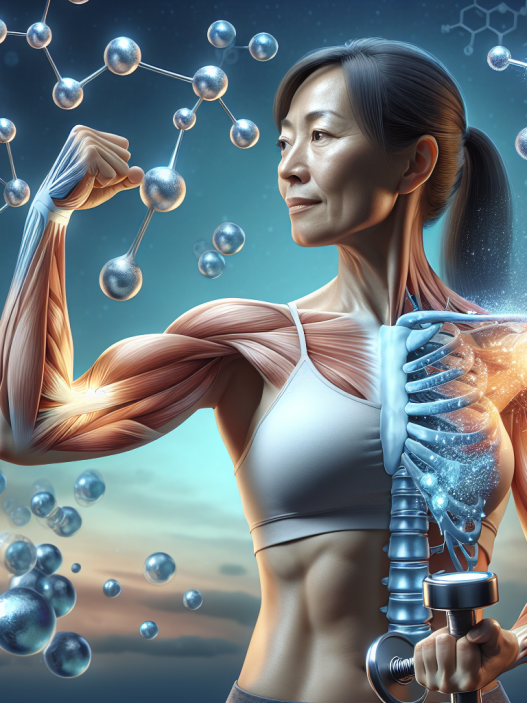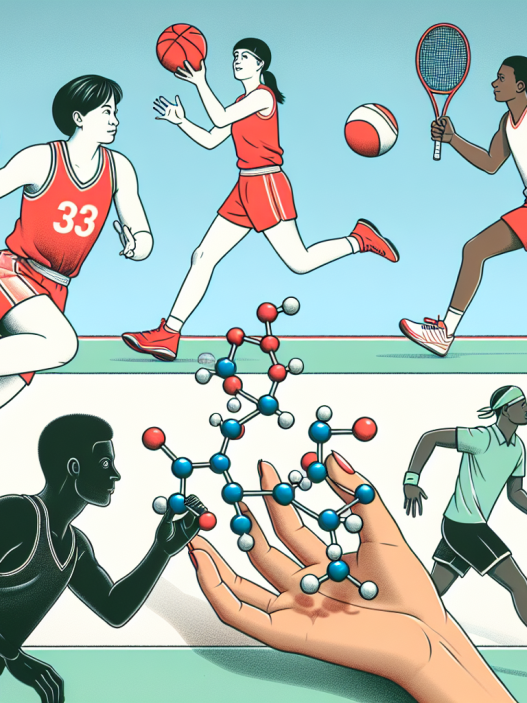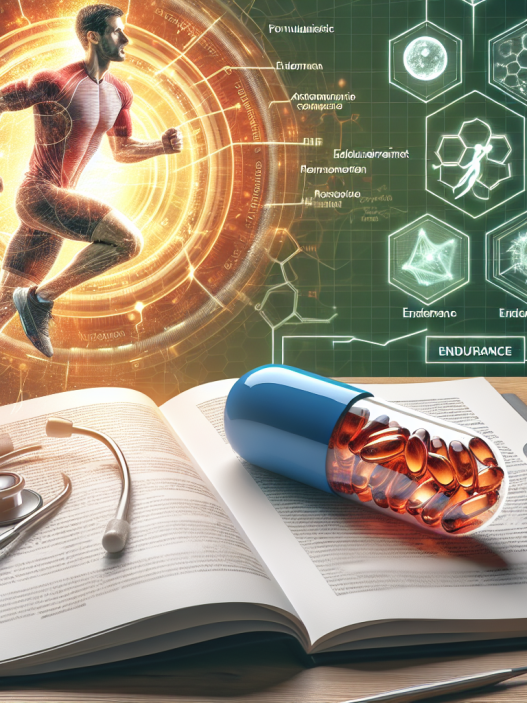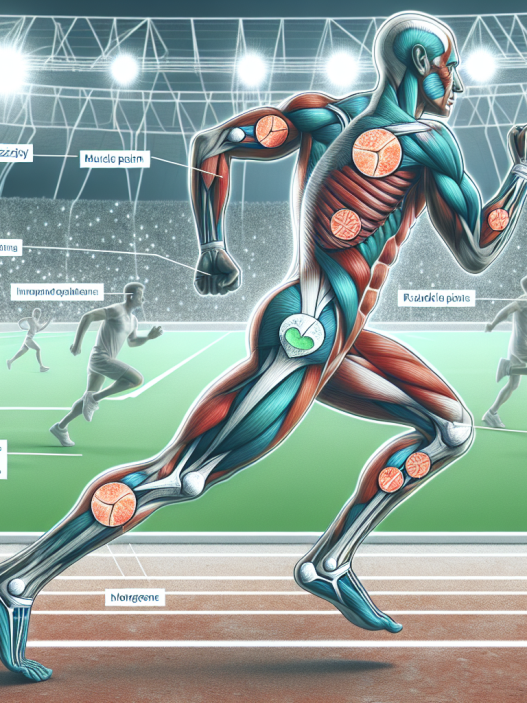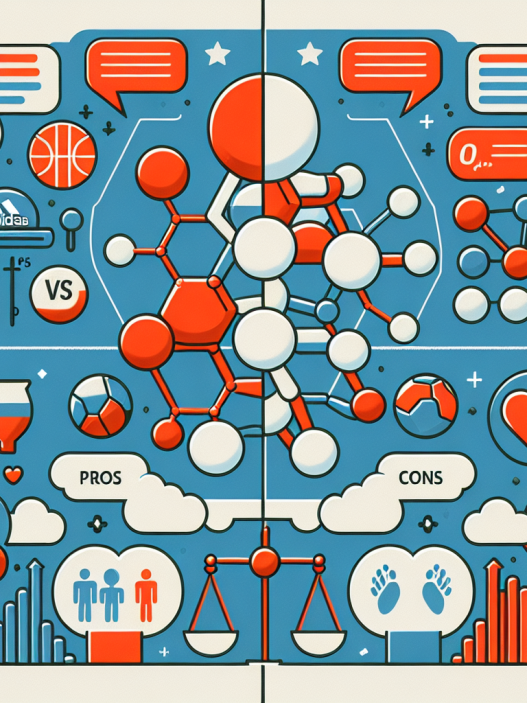-
Table of Contents
Using Isotretinoin in Sports Pharmacology: Benefits and Risks
Isotretinoin, also known as Accutane, is a powerful medication primarily used to treat severe acne. However, in recent years, it has gained attention in the world of sports pharmacology for its potential performance-enhancing effects. Athletes have been known to use isotretinoin to improve their physical appearance and potentially gain an edge in their sport. But what are the actual benefits and risks of using isotretinoin in sports? In this article, we will explore the pharmacokinetics and pharmacodynamics of isotretinoin, as well as the potential benefits and risks of its use in sports.
Pharmacokinetics of Isotretinoin
Isotretinoin is a synthetic form of vitamin A and is classified as a retinoid. It is taken orally and is rapidly absorbed into the bloodstream. The peak plasma concentration is reached within 2-4 hours after ingestion (Katsambas et al. 2007). The drug is highly lipophilic, meaning it has a high affinity for fat cells, and is stored in the body’s fatty tissues. This is important to note because isotretinoin has a long half-life of 10-20 hours, meaning it can stay in the body for an extended period of time (Katsambas et al. 2007). This is also why isotretinoin is not recommended for pregnant women, as it can potentially harm the developing fetus.
Isotretinoin is primarily metabolized by the liver and is excreted through the urine and feces. It is important to note that isotretinoin can interact with other medications, such as antibiotics and birth control pills, which can affect its metabolism and clearance from the body (Katsambas et al. 2007). This is why it is crucial for athletes to disclose all medications they are taking to their healthcare provider before starting isotretinoin.
Pharmacodynamics of Isotretinoin
The exact mechanism of action of isotretinoin is not fully understood, but it is believed to work by reducing the production of sebum, the oily substance that can clog pores and lead to acne (Katsambas et al. 2007). It also has anti-inflammatory properties, which can help reduce the redness and swelling associated with acne. However, isotretinoin also has other effects on the body that may be of interest to athletes.
One potential benefit of isotretinoin for athletes is its ability to increase muscle mass. Studies have shown that isotretinoin can increase the levels of insulin-like growth factor 1 (IGF-1) in the body (Katsambas et al. 2007). IGF-1 is a hormone that plays a crucial role in muscle growth and repair. By increasing IGF-1 levels, isotretinoin may help athletes build and maintain muscle mass, which can be beneficial for performance in sports that require strength and power.
Another potential benefit of isotretinoin for athletes is its ability to improve endurance. Isotretinoin has been shown to increase the levels of erythropoietin (EPO) in the body (Katsambas et al. 2007). EPO is a hormone that stimulates the production of red blood cells, which are responsible for carrying oxygen to the muscles. By increasing EPO levels, isotretinoin may improve oxygen delivery to the muscles, leading to improved endurance and performance in endurance-based sports.
Benefits of Isotretinoin in Sports
Based on the pharmacokinetic and pharmacodynamic data, it is clear that isotretinoin has the potential to provide several benefits for athletes. These include:
- Improved muscle mass
- Increased endurance
- Reduced acne and improved physical appearance
These benefits can be especially appealing to athletes who are looking to gain a competitive edge in their sport. However, it is important to note that these potential benefits have not been extensively studied in the context of sports performance. More research is needed to fully understand the effects of isotretinoin on athletic performance.
Risks of Isotretinoin in Sports
While isotretinoin may offer potential benefits for athletes, it also comes with several risks that must be considered. These include:
- Potential side effects, such as dry skin, joint pain, and mood changes
- Potential interactions with other medications
- Potential for abuse and misuse
It is important for athletes to be aware of these risks and to carefully weigh them against the potential benefits before deciding to use isotretinoin for sports performance.
Real-World Examples
The use of isotretinoin in sports has gained attention in recent years due to several high-profile cases. In 2016, Russian tennis player Maria Sharapova tested positive for meldonium, a banned substance, and claimed that she had been taking it for medical reasons. However, it was later revealed that she had also been taking isotretinoin, which she claimed was for acne treatment (BBC Sport 2016). This case highlights the potential for athletes to use isotretinoin as a performance-enhancing drug, even if it is prescribed for a legitimate medical condition.
In another case, former NFL player Brian Cushing was suspended for four games in 2010 after testing positive for hCG, a hormone that is often used to mask the use of performance-enhancing drugs. Cushing claimed that the hCG was prescribed by his doctor to treat a condition called gynecomastia, or enlarged breast tissue, which can be a side effect of using isotretinoin (ESPN 2010). This case highlights the potential for isotretinoin to be used as a masking agent for other banned substances.
Expert Opinion
While there is limited research on the use of isotretinoin in sports, experts in the field of sports pharmacology have expressed concerns about its potential for abuse and misuse. Dr. Gary Wadler, a former chairman of the World Anti-Doping Agency’s Prohibited List and Methods Committee, stated, “Isotretinoin is a drug that has been used for performance enhancement, and it’s a drug that has been used to mask other drugs” (ESPN 2010). This highlights the need for stricter regulations and monitoring of isotretinoin use in sports.
Conclusion
In conclusion, isotretinoin has the potential to provide several benefits for athletes, including improved muscle mass and endurance. However, it also comes with several risks, such as potential side effects and interactions with other medications. The use of isotretinoin in sports

